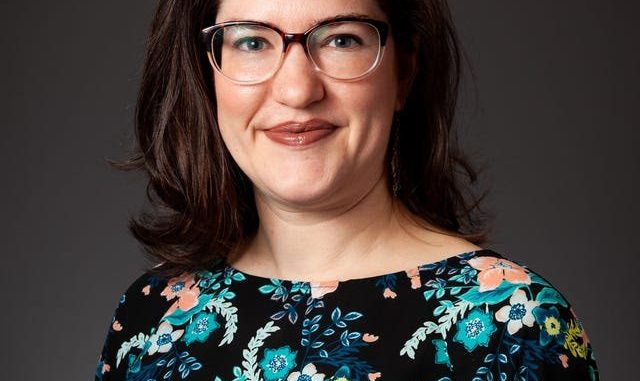
After internal challenges with discrimination, the Southern Poverty Law Center can’t call itself an arbiter of justice.
I’ll never forget the moment I learned we were on lockdown. It was Aug.15, 2012. My frustration mingled with fear. Trapped on the sixth floor, we knew someone had been shot. We knew we couldn’t leave yet. We knew little else.
While I was missing lunch, a crime scene played out in the office lobby below me. My coworker and friend Leo wasn’t armed, but he’d played the quick-thinking and inadvertent hero, disarminga young man on a mission to kill me and as many of my colleagues as possible. The gunman had packed his backpack with ammo and 15 Chick-fil-A sandwiches — later admitting that he’d planned to smear them on our lifeless faces as a political statement. Leo took a bullet in the arm but managed to disarm and hold the attacker until law enforcement arrived.
I wrote and edited for the Family Research Council, a public advocacy organization that promoted the principles I’d cared about since childhood: protecting the family, promoting the dignity of every human life and advocating for religious liberty. It reads like a tagline, but it’s also just what I believed and the way I chose to match my career with my convictions.
I never expected that everyone would celebrate or share my beliefs. But I did expect to be able to discuss and debate these differences without becoming a political target in an act of terrorism, the first conviction under Washington, D.C.’s 2002 Anti-Terrorism Act.
The Southern Poverty Law Center labeled us a “hate group”
It was the type of violent incident that one could expect a group that purportedly monitors “hate,” like the Southern Poverty Law Center, to notice, research, and decry. In fact, we were on the center’s radar but for all the wrong reasons. The assailant acknowledged later in FBI testimony that he had selected our office precisely because the SPLC had labeled my employer a “hate group.”
It’s always been easier to smear people rather than wrestle with their ideas. It’s a bully who calls names and spreads liesrather than thoroughly reading a brief’s legal arguments or challenging the rationale underlying a policy proposal. The SPLC has chosen to take the easy path — to intimidate and mislead for raw political power and financial benefit.
For years, former employees revealed, local journalists reported and commentators have lamented: the Southern Poverty Law Center is not what it claims to be. Not a pure-hearted, clear-headed legal advocate for the vulnerable, but rather an obscenely wealthy marketing scheme. For years, the left-wing interest group has used its “hate group” list to promote the fiction that violent Neo-Nazis and Christian nonprofits peacefully promoting orthodox beliefs about marriage and sex are indistinguishable. Sometimes, it’s apologized to public figures; it’s smeared and recently paid out millions to settle a threatened defamation lawsuit.
The SPLC has its own troubles
These shameful secrets are no longer hidden in shadows. The New York Times, Politico, NPR and a host of other mainstream publications are reporting on the corruption and widening credibility gap. The SPLC dismissed its co-founder, and its president resignedamidst numerous claims of sexual harassment, gender discrimination and racism within the organization — a parade of disgraces that vividly force the conclusion: The SPLC is hollow, rotten and failing at the very virtues it pretends to celebrate.

The criticism comes from many corners. There’s the Current Affairs editor who seems sympathetic to the center’s progressive mission but decries its “hate group” list as an “outright fraud” and a “willful deception designed to scare older liberals into writing checks to the SPLC.”
There’s the retired investigative journalist who helped research and write an eight-part series on the center’s “litany of problems and questionable practices” in the mid-1990s. His Washington Post opinion piece reads with a thinly-veiled message: We nearly got a Pulitzer Prize for TELLING YOU SO.
But perhaps most damning of all are the indictments leveled by former employee Bob Moser in The New Yorker. He remembers being welcomed to the “Poverty Palace” and recounts the heart-sinking reality of it all — being “pawns” in a “highly profitable scam.”
False ‘racism’ claims carry real burden: Oberlin bakery owner: Gibson’s Bakery paid a high cost for an unfairly damaged reputation
Jobs and years have passed, and I work now for Alliance Defending Freedom. ADF ranks among “the top performing firm(s]” litigating First Amendment cases, the “Christian legal powerhouse that keeps winning at the Supreme Court.” And yes, my new employer has also attracted one of the SPLC’s spurious hate labels. The label easily peels and fades away when one actually does the research and listens to truth before deciding to troll.
I won’t be intimidated by the SPLC
If the SPLC thought that their hate would intimidate or silence me and my colleagues, they’re sadly mistaken. I’m lucky — blessed, really — that I didn’t take a bullet for my beliefs back in 2012. But the center’s ugly slander and the gunman’s misguided attack have sharpened my resolve and deepened my faith in my Savior, who commands my destiny and shields me from the schemes of man. The same is true for my colleagues.
Fifty-one years ago, Dr. Martin Luther King, Jr., fell to an assassin’s bullet. The SPLC pretends to carry his legacy but weaponizes hate labels instead. Unlike SPLC’s name-calling, Dr. King’s words and vision stand the test of time. “Injustice anywhere,” he warned, “is a threat to justice everywhere.”
The SPLC, as an institution, has thoroughly disqualified itself as an arbiter of justice. But this country would be a better place if the center’s donors, lawyers and friends would truly believe and apply Dr. King’s legacy — his peaceful pursuit of justice and his love of neighbor.
*story by USA Today